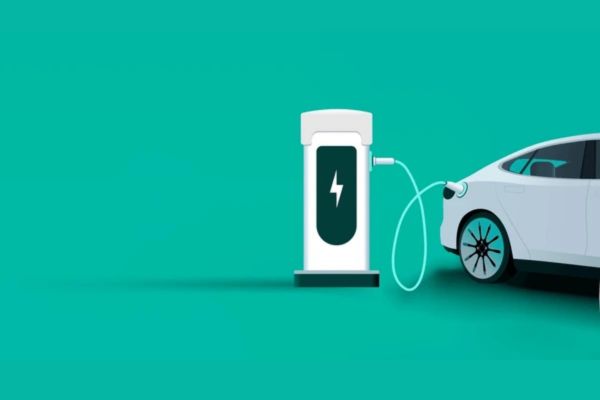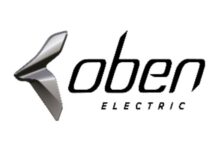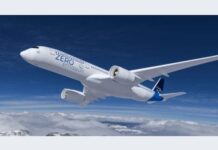The global alternative fuel vehicle market is expected to surge around USD 1,211.49 billion by 2034 from USD 404.41 billion in 2024 with a CAGR of 11.59%.
Alternative Fuel Vehicle Market Key Insights
- In 2024, Asia Pacific led the global alternative fuel vehicle market, accounting for the largest share of 40%.
- North America is expected to register a strong CAGR over the forecast period.
- By vehicle types, passenger vehicles held the highest market share at 60% in 2024, while the commercial vehicles segment is anticipated to grow at a notable CAGR in the coming years.
- By fuel type, the electric segment emerged as the market leader in 2024.
Which Vehicle Types Are Leading the AFV Market?
Passenger vehicles held the largest share of the AFV market in 2024, contributing 60% to the global market. This dominance is attributed to the rising consumer demand for eco-friendly personal transportation options. However, the commercial vehicles segment is anticipated to grow at a notable CAGR during the forecast period, driven by the logistics industry’s shift towards sustainable operations.
How Is Artificial Intelligence Influencing the AFV Industry?
Artificial Intelligence (AI) is increasingly integrated into the AFV sector, enhancing various aspects from manufacturing to user experience. AI-driven data analytics and machine learning are optimizing supply chains, predictive maintenance, and energy management in vehicles. This technological advancement not only improves operational efficiency but also reduces costs, making alternative fuel vehicles more accessible to consumers.
What Are the Key Factors Driving the AFV Market’s Expansion?
- Environmental Regulations: Governments worldwide are implementing strict emission norms to combat climate change, encouraging the adoption of AFVs.
- Economic Incentives: Subsidies, tax benefits, and incentives are making AFVs financially attractive to consumers and businesses.
- Technological Advancements: Improvements in battery technology, fuel efficiency, and vehicle performance are enhancing the appeal of AFVs.
- Consumer Awareness: Growing awareness about environmental issues is influencing consumer preferences towards sustainable transportation options.
What Challenges Could Impact the AFV Market’s Growth?
- Infrastructure Development: The lack of widespread charging and refuelling infrastructure can hinder AFV adoption.
- High Initial Costs: The upfront cost of AFVs remains higher compared to conventional vehicles, which may deter some consumers.
- Technological Barriers: Ongoing technological limitations, such as battery range and charging times, need continuous improvement.
- Market Competition: The increasing number of players in the AFV market intensifies competition, requiring continuous innovation.
How Are Different Countries and Regions Contributing to Market Expansion?
Asia-Pacific: The Powerhouse of Growth
Asia-Pacific leads the global AFV market, claiming nearly 40% of the overall share in 2024. Within this region,
China is the indisputable frontrunner, driven by aggressive government mandates to reduce pollution, ambitious EV adoption targets, and massive subsidies for clean vehicle technologies. The country’s “dual credit policy,” which penalizes automakers for not producing zero-emission vehicles, has played a pivotal role in ramping up production and adoption. Chinese firms such as BYD and NIO are expanding rapidly not only domestically but also abroad, challenging traditional automakers.
India follows with a sharp upward trend, supported by its FAME II (Faster Adoption and Manufacturing of Hybrid and Electric Vehicles) initiative, which aims to incentivize both consumers and manufacturers to embrace electric and hybrid options. Additionally, growing urban congestion and deteriorating air quality in major Indian cities have catalyzed the demand for greener mobility alternatives.
Japan, another major player in the region, remains at the forefront of hydrogen fuel cell technology, with companies like Toyota leading innovation in hydrogen-powered vehicles. The government’s strategic roadmap for hydrogen energy has resulted in a national push toward establishing hydrogen fueling infrastructure, positioning Japan as a leader in this niche.
North America: Policy-Driven Acceleration
North America, especially the United States, is witnessing a significant upswing in AFV adoption, largely influenced by federal and state-level policies aimed at reducing greenhouse gas emissions.
The U.S. government’s Inflation Reduction Act of 2022 provided strong momentum by allocating substantial funds towards electric vehicle infrastructure, consumer rebates, and battery manufacturing. Automakers like Tesla, Ford, and General Motors are ramping up production capacity to meet the growing demand. Additionally, California’s zero-emission vehicle mandates are acting as a bellwether for national policy, encouraging broader AFV adoption.
Canada is also making strides, with aggressive targets to phase out internal combustion engine vehicles by 2035, supported by clean fuel standards, financial incentives, and infrastructure investments. The Canadian market is further boosted by the availability of renewable natural gas and ethanol-blended fuels.
Europe: Sustainability-Centric Transformation
Europe stands as a leader in sustainable mobility, with countries like Germany, France, and Norway spearheading the transition. Germany, home to automotive giants such as Volkswagen and BMW, has committed billions of euros to support EV infrastructure, battery production, and research in hydrogen mobility. Germany’s vehicle emission norms are among the strictest globally, prompting rapid innovation and adaptation within the industry.
France, under its ecological transition plans, offers considerable rebates for electric and hybrid vehicles while simultaneously imposing penalties on high-emission vehicles. Norway, though smaller in population, has set a global benchmark, with over 80% of new cars sold being electric, thanks to tax exemptions, free parking, and toll waivers for EV owners.
The broader European Union is also playing a key role by enforcing fleet-wide emission targets and promoting a pan-European charging infrastructure, bolstered by initiatives such as the European Green Deal and Fit for 55 policy package.
Latin America, Middle East & Africa: Emerging Opportunities
While adoption in Latin America is still nascent, countries like Brazil and Mexico are beginning to explore the AFV landscape, particularly with bioethanol and hybrid vehicles. Brazil’s strength in ethanol-based fuel provides a unique avenue for sustainable transportation, with many flex-fuel vehicles already in operation. Mexico, under pressure from cross-border environmental agreements and North American trade partners, is investing in hybrid vehicle production and is exploring partnerships with global manufacturers to accelerate its transition.
In the Middle East, United Arab Emirates and Saudi Arabia are diversifying their economies beyond oil by investing in clean mobility infrastructure and AFV fleets, particularly in urban centers. Saudi Arabia’s Vision 2030 includes goals for sustainable transport, while the UAE has set ambitious clean energy targets that align closely with AFV adoption.
In Africa, the market remains in early stages, but nations like South Africa are showing interest in electric mobility through public-private collaborations aimed at reducing urban pollution.
Role of Leading Companies in the Alternative Fuel Vehicle Market
1. Battery Electric Vehicle (BEV) Leaders
- Tesla: Tesla is a global leader in battery electric vehicles, producing a wide range of high-performance electric cars and investing in battery storage and energy solutions. The company’s innovation and brand recognition have accelerated the adoption of electric vehicles worldwide.
- BYD Company Limited: BYD is a major producer of electric cars and buses, especially in China. The company is recognized for its large-scale manufacturing capabilities and leadership in both passenger and commercial electric vehicles.
- Nissan Motor Corporation: Nissan pioneered mass-market electric vehicles with the Nissan Leaf and continues to expand its electric vehicle lineup, contributing to the mainstream acceptance of EVs.
- BMW Group: BMW offers several electric vehicles under its BMW i and MINI Electric brands, focusing on premium electric mobility and integrating renewable energy initiatives in its operations.
2. Hybrid and Plug-in Hybrid Vehicle Innovators
- Toyota Motor Corporation: Toyota is a global leader in hybrid technology, with the Prius setting industry benchmarks. The company is also advancing hydrogen and multi-fuel engines, offering a range of low-emission vehicles.
- Honda Motor Co., Ltd.: Honda develops hybrid, plug-in hybrid, and fuel cell vehicles, providing diverse alternative fuel options and aiming for significant emission reductions across its product range.
- Mitsubishi Motors Corporation: Mitsubishi is known for the Outlander PHEV, a best-selling plug-in hybrid SUV, and continues to innovate in hybrid and plug-in hybrid technologies.
- Ford Motor Company: Ford offers a wide portfolio of hybrid and plug-in hybrid vehicles, including popular models like the Escape Hybrid and F-150 Power Boost, and is expanding its alternative fuel systems.
- General Motors: GM provides hybrid and plug-in hybrid vehicles and collaborates on alternative fuel systems, including natural gas and LPG, to promote sustainable mobility.
3. Hydrogen and Alternative Fuel Pioneers
- AUDI AG: Audi invests in the development of CO₂-neutral synthetic fuels and hydrogen technologies, exploring alternatives like e-diesel and e-gas to support sustainable mobility.
- Toyota Motor Corporation: Toyota is also a leader in hydrogen fuel cell vehicles, with models like the Mirai, and is developing engines capable of running on hydrogen and other alternative fuels.
- Volkswagen AG: Volkswagen invests in a range of alternative fuel technologies, including flex-fuel vehicles, biofuels, and electrification, supporting sustainability in various markets.
- Scania: Scania focuses on alternative fuel solutions for commercial vehicles, including biofuels, natural gas, and hybrid technologies, promoting sustainable transport in the heavy-duty sector.
4. Renewable and Synthetic Fuel Collaborators
- BMW Group: BMW partners with renewable fuel producers to use renewable diesel in its vehicles, demonstrating the viability of cleaner fuels in existing engines.
- AUDI AG: Audi’s work on synthetic e-fuels highlights its commitment to renewable alternatives that can be blended with or replace conventional fuels.
5. Commercial and Specialty Vehicle Innovators
- Zero Motorcycles, Inc.: Zero Motorcycles specializes in electric motorcycles, offering zero-emission alternatives in the two-wheeler market and advancing electric mobility in personal transportation.
- Polaris Industries: Polaris develops electric and hybrid off-road vehicles, bringing alternative fuel technology to recreational and utility vehicles.
- Nikola Motor Company: Nikola focuses on hydrogen fuel cell and battery-electric trucks, aiming to transform long-haul commercial transport with zero-emission solutions.
- Tata Motors: Tata Motors advances alternative fuel vehicles in India, including electric, hybrid, and CNG-powered vehicles, addressing local environmental and regulatory needs.
- Renault: Renault offers a diverse lineup of electric and hybrid vehicles, especially in Europe, and continues to expand its alternative fuel vehicle offerings to support carbon reduction goals.

















